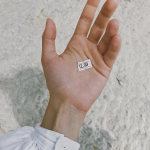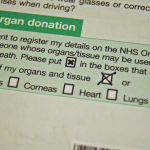The stakes are literally life and death. More than 100,000 patients are on the national transplant list, awaiting organ transplants, with thousands needlessly dying before receiving them. For now, a single nonprofit, The United Network for Organ Sharing (UNOS), is the sole organization responsible for matching organ recipients with donors. Last year the 42,888 organ transplants performed were just not enough.
Organ donation
The Holiday Season is in full swing, and we here at the American Council on Science and Health continue our fight on behalf of good science! Here's where we appeared in recent days.
Since anyone can be in a position to be touched by this topic, whether it be for yourself or a loved one, raising awareness can start a worthy dialogue in families. A lot has changed in transplant medicine.
There are precedents in healthcare to tethering financial compensation to body parts, as in the case with egg or sperm donation, and surrogacy. Are organs any different?
Though we're often told that with every new digital health product, medication or device, biotech firm or health-system launch how "groundbreaking," "revolutionary" or "disruptive" it is, here's an ongoing medical reality that actually is just those things.
The sudden loss of any body part is life-altering. Yet we live in a time with plentiful options that are continuously advancing, and which can be used to restore a person to a high degree of function.
A new law passed by a slim margin in the Netherlands reflexively making anyone over the age of 18 an organ donor, compelling them to have to take specific action to opt out. Should the U.S. follow suit?
The father of a two-year-old toddler was set to donate his kidney to his son and begin the steps necessary for the surgery. But a parole violation has altered the plan, which now might endanger the boy's survival.
Instead of offering an organ to someone else, what if a person wants to sell one for their own benefit – to help pay off college debts, or for a down payment on a new home? If it's ethical to donate an organ to someone in need, why isn't it to sell an organ to somebody in need? Could the free market help fix the organ trafficking dilemma?
Besides deceiving readers about science policy, there are plenty of other reasons to avoid Slate. Perhaps best is that the online site loves posting contrarian articles using a time-tested formula to attract readers: Take an obviously-stupid statement and add a headline vigorously defending it. Whether the article is accurate, compelling or well-conceived is an afterthought.
Three-dimensional bioprinting is offering science a real hope of creating organs needed for transplants. With about 75,000 patients waiting on any given day, and an average of 22 people dying daily while hoping to receive a transplant, the need is acute to say the least.









